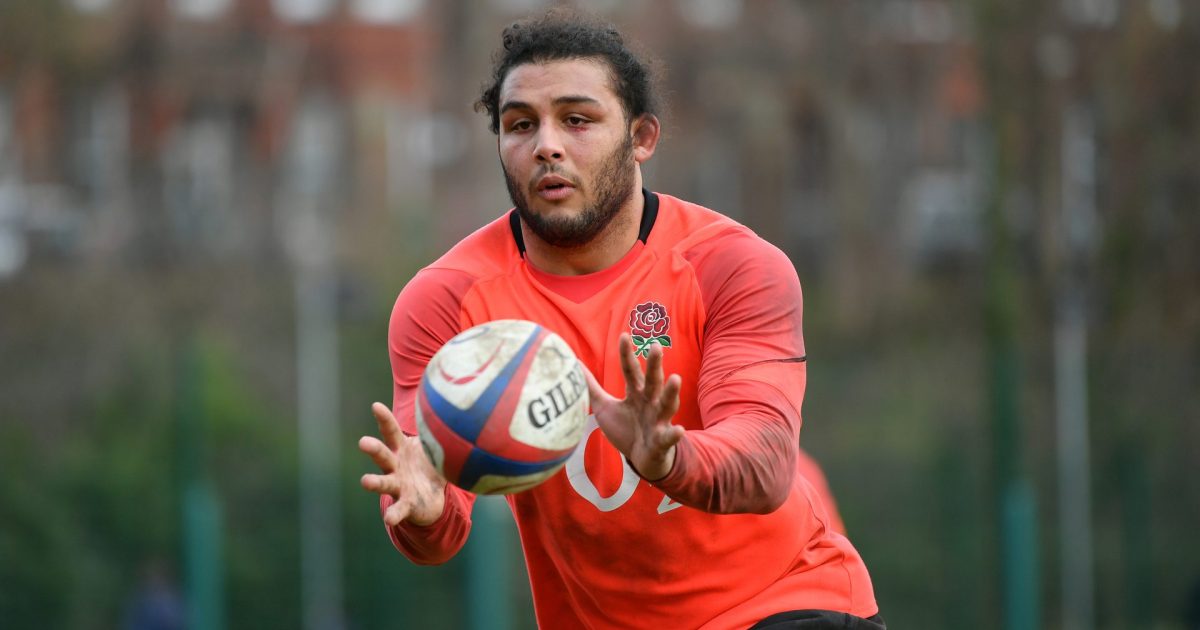England explain the selection of unheralded duo Ludlam and Isiekwe

You would have very got long odds a few weeks ago on Eddie Jones naming an England team to face Scotland this Saturday with Lewis Ludlam, Nick Isiekwe and Elliot Daly all chosen to start. Yet here we are with all three unlikely candidates – two of whom weren’t even in the original squad named for the Guinness Six Nations championship on January 18 – picked to run out at Murrayfield.
The 26-year-old Ludlam has been chosen as the England No6 in place of the unavailable Courtney Lawes. It will be just his fifth ever start at Test level and the first time in the No6 jersey since he was picked to beat the Scots in the February 2020 Calcutta Cup win in Edinburgh.
Isiekwe’s track record is even more minuscule. The 23-year-old toured Argentina and South Africa years ago under Jones as the next bright young thing but until this weekend he hadn’t added to his three caps, a haul where his most recent appearance came as a starter in June 2018 versus the Springboks in Johannesburg.
He was named as an injury cover call-up for the Brighton training week when it became apparent that Jonny Hill was struggling with a stress fracture and despite that unheralded ‘cover’ status, he has since forced his way up the pecking order to earn an England start alongside Maro Itoje, his Saracens colleague.
Another from Sarries with a great reason to smile following Jones’ Test team announcement on Thursday was Daly, who just a few weeks back was deemed surplus to requirement when a 36-strong squad was originally named for Six Nations training. He had returned from the Lions as the only touring player to play a part in all eight matches in South Africa but a shin issue required an operation which left him playing catch-up with England until now.
Jones has no qualms about including Ludlam and Isiekwe, explained how both have similar sort of stories in that they got an early look-in with England, suffered a dip and have taken a bit of time to bounce back. “They have done really well,” enthused the England coach after naming an XV showing seven changes from the starting team that saw off the Springboks at Twickenham in November.
“With Courtney unavailable at six, Lewis has been one of the outstanding back-rowers in the Premiership. We brought him into the World Cup squad in 2019 out of nowhere. He suffered a little bit of a dip in form post the World Cup, which is not unusual for young players, but he has fought his way back really hard, got the basics of his game in place and he is a good tough competitor.
“Nick Isiekwe is not dissimilar but he was a little bit earlier (in the England set-up). We took him on the 2018 tour to South Africa, showed enough promise to be given his first cap. Had a difficult game, was a bit up and down in his club rugby but over the last twelve months he has been one of the outstanding locks in the Premiership and with Maro forms a pair that we think can shade Scotland in the lineouts and his play around the ruck is first class.”
Switching to the backs, where the inclusion of the seasoned Daly for a first England start at outside centre since a November 2016 match-up with South Africa allowed Henry Slade to switch into No12 in the absence of the injured Manu Tuilagi with Max Malins named on the wing, Jones added: “Max is a very good winger cum full-back.
“Elliot, it was a choice between either him or Joe Marchant at 13. We just feel Elliot has a little bit more experience and we feel like he is in really good form. Joe had a bit of a troubled preparation for this game (a spell in isolation) but he will be able to fit in on the wing well.”











































































